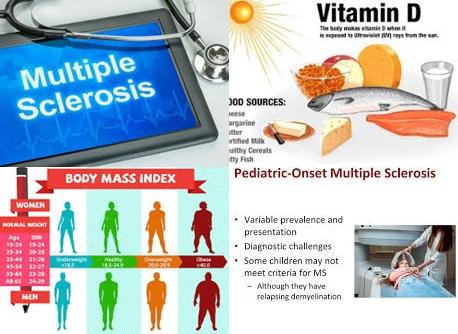
Objectives:
Is there a causal association between low serum vitamin D concentrations, increased body mass index (BMI) and pediatric-onset multiple sclerosis (MS) using genetic risk scores (GRS)?
Study design:
This review article included participants of non-Hispanic white individuals recruited from over 15 sites across the United States (n = 394 cases, 10,875 controls) and Sweden (n = 175 cases, 5,376 controls; total n = 16,820).
Results and conclusions:
The investigators found meta-analysis findings demonstrated that a vitamin D GRS associated with increasing levels of 25(OH)D in serum significantly decreased risk of pediatric-onset MS with 28% [OR = 0.72, 95% CI = 0.55-0.94, p = 0.02] after controlling for sex, genetic ancestry, HLA-DRB1*15:01 and over 100 non-human leukocyte antigen MS risk variants.
The investigators also found that a higher BMI GRS significant increased risk of pediatric-onset MS with 17% [OR = 1.17, 95% CI = 1.05-1.30, p = 0.01] after adjusting for covariates.
The investigators found estimates for each GRS were unchanged when considered together in a multivariable model.
The investigators concluded evidence supporting independent and causal effects of decreased vitamin D levels and increased BMI on susceptibility to pediatric-onset MS.
Original title:
Evidence for a causal relationship between low vitamin D, high BMI, and pediatric-onset MS by Gianfrancesco MA, Stridh P, […], Waubant E.
Link:
https://www.ncbi.nlm.nih.gov/pubmed/28356466
Additional information of El Mondo:
Find more information/studies on chronich disease and vitamin D right here.